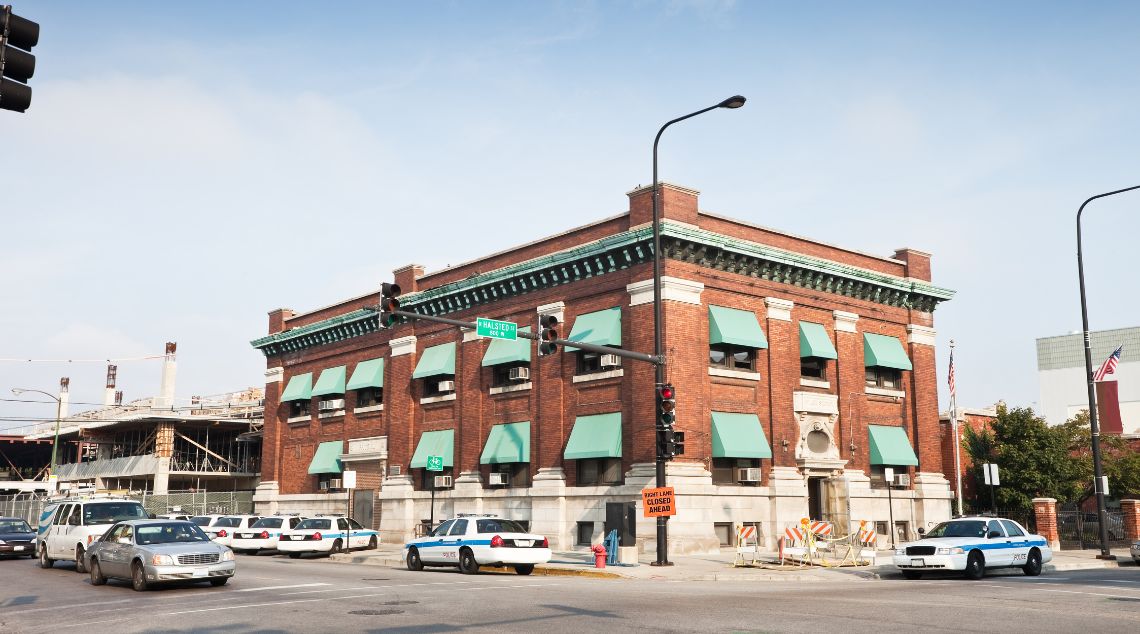In an attempt to curb dire staffing issues, several States under Democrat control are now opening the door for foreign nationals to work as police officers.
Some of these laws allow them to get hired “under the same conditions” as American citizens (including carrying a Department-issued weapon) or create new positions for them, such as “peace officer.” But euphemisms and titles aside, some legal experts have expressed deep concerns about the legal implications of having asylum seekers as law enforcement agents.
Empty Police Stations: A Silent Small Town Epidemic
In many cities across the country, law enforcement agents are now an increasingly scarce resource. In smaller towns, suburbs, and rural areas, the trend has been driven by a combination of budget cuts, low morale, and a rapidly rising cost of living has driven many agents to seek greener pastures – whether in larger cities, which can usually pay more, or in the private sector.
This trend has worsened radically over the past three years, coinciding with the rise of the “Defund the Police” movement. While politicians shuffled money away from local law enforcement agencies, Police Departments had to downsize anything from training programs to bonuses. Recruitment numbers dwindled further, and officers opted for early retirement in massive numbers: according to a survey by the Police Executive Research Forum, the last three years saw 23.6% more retirements than in 2019.
These factors have now led to disastrous consequences. In a particularly dramatic example, the entire Police Department of Goodhue, Minnesota, resigned within a week. But rather than listening to the Police Chiefs and Sheriffs clamoring for better incentives, some politicians are tapping into a new population instead: immigrants without U.S. Citizenship.
Which Laws Allow Hiring Asylum Seekers in Law Enforcement?
Currently, three States have signed legislation to allow Police Departments to hire foreigners: California, Illinois, and Colorado.
California’s Senate Bill 960
Originally approved in October 2022, this bill “relating to public employment” removes the previous requirement for law enforcement officers to “either be a citizen of the U.S. or be a permanent resident who has applied for citizenship.”
Instead, any prospective peace officers just need to be legally authorized to work in the United States at the time of their application

Illinois’ House Bill 3751
Signed by Democratic Governor J.B. Pritzker in July, this bill allows non-citizens to apply and be hired as police officers. However, this will only apply to those who are legally allowed to work in the country. In addition, the applicants must have or be eligible to obtain a firearm user’s license. This includes permanent residents, holders of a Federal Work Permit, or recognized asylum seekers whose right to remain and work has been ratified by Homeland Security.
Colorado’s House Bill 23-1143
Approved by fellow Democrat Jared Polis in April, this bill allows immigrants who have “deferred action status” from the Immigration and Naturalization Service, as well as asylum seekers, to be hired as “peace officers.”
The legislation also mandates law enforcement agencies to amend their policies to ensure these new officers can access a firearms license.
This opens a wider gate than the Illinois bill, as it would encompass DACA (Deferred Action for Childhood Arrivals) recipients, who generally entered the country illegally as children but have the temporary right to work in the U.S. At the Federal level, DACA recipients and other “temporary deferrals” are not eligible for firearms licenses.
Obscure Backgrounds, Confusing Status: What Could Go Wrong?
There is little room for denial here: the country is in dire need of more police officers. However, the implications of hiring non-citizens can be hard to predict at first glance.
It should be noted that none of these bills would allow an illegal or fully undocumented immigrant to apply for a law enforcement position. However, the Californian and Coloradan bills do leave room for people who entered the country illegally. This creates a thorny conflict of interest, right at a time when the country faces an unprecedented number of border crossings.
It also creates uncertainty regarding the officers themselves. Generally, prospective recruits need to have flawless educational and criminal records, as well as “proven good character.” This can be hard to verify in the case of asylum seekers, says Rosemary Jenks, from NumbersUSA: “We know nothing — literally nothing — about these people other than what they told us. […] So how are you going to vet people?”
Ultimately, law enforcement officers are tasked with enforcing our legal system and protecting fellow citizens. Communities need to be certain about the character of their local officers to be able to trust them. This respect is easily lost, and should not be jeopardized.










